Yujiao Chen
Estimating electricity saving-potential in small offices using adaptive thermal comfort
May 12, 2022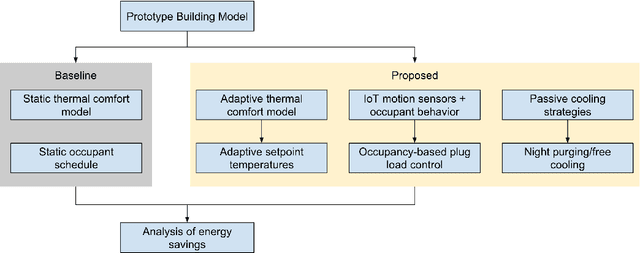
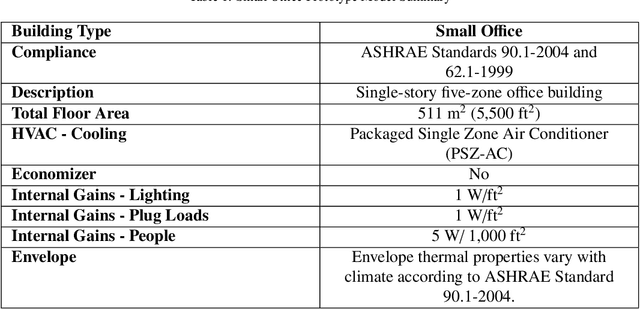
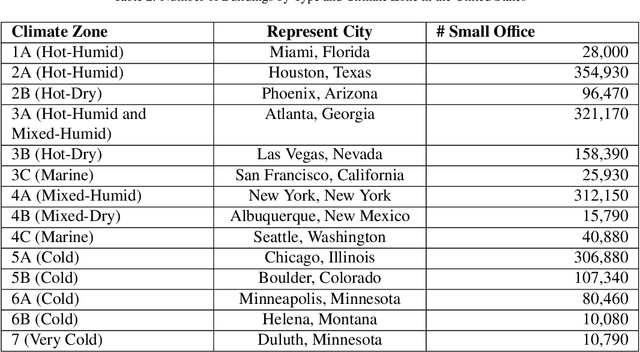
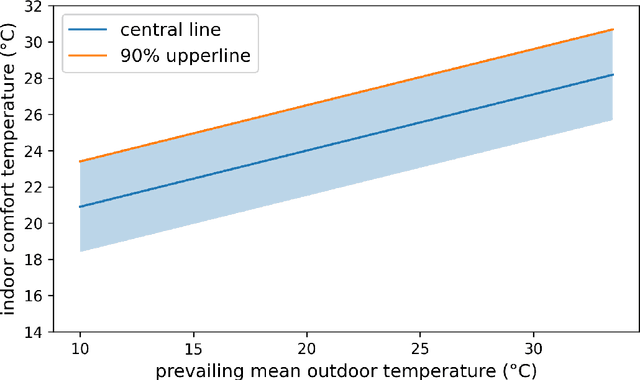
Abstract:The smart control informed by IoT sensors and enabled by remotely controlled devices can optimize the building operation to minimize unnecessary energy consumption and improve indoor thermal comfort. This paper quantifies the potential for electricity savings in small office buildings from smart thermostat control and occupancy-informed smart plug control. This is done by simulating the effect of adaptive setpoint temperature, occupancy-based HVAC control, and night-purge free cooling on small office buildings across all major climate zones in the United States. Adopting these smart control measures can achieve 8.9% to 20.4% of savings in total electricity consumption of small office buildings, or equivalent to annual reductions between 12.2 kWh/m2 and 30.4 kWh/m2 in electricity usage intensity. Among all climate zones, the hot and dry climates benefit the most from proposed smart controls and achieve the highest percentages of electricity savings
Learning and Fast Adaptation for Grid Emergency Control via Deep Meta Reinforcement Learning
Jan 13, 2021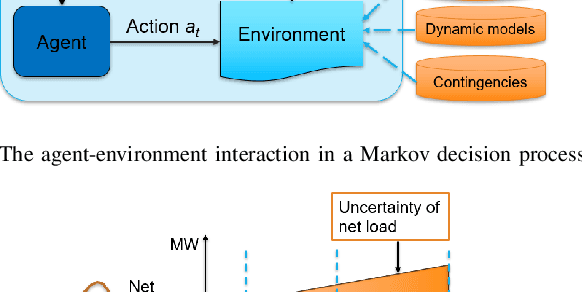
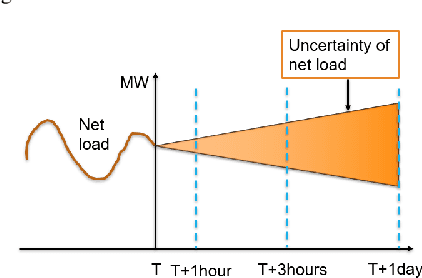
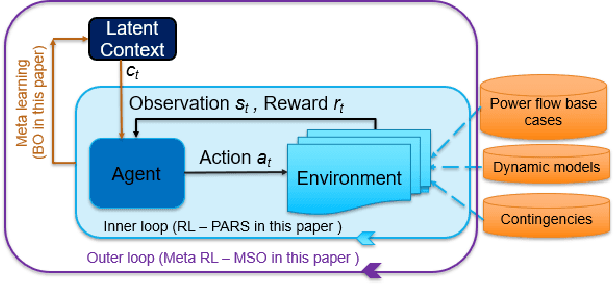
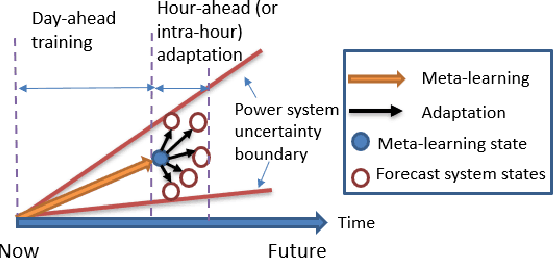
Abstract:As power systems are undergoing a significant transformation with more uncertainties, less inertia and closer to operation limits, there is increasing risk of large outages. Thus, there is an imperative need to enhance grid emergency control to maintain system reliability and security. Towards this end, great progress has been made in developing deep reinforcement learning (DRL) based grid control solutions in recent years. However, existing DRL-based solutions have two main limitations: 1) they cannot handle well with a wide range of grid operation conditions, system parameters, and contingencies; 2) they generally lack the ability to fast adapt to new grid operation conditions, system parameters, and contingencies, limiting their applicability for real-world applications. In this paper, we mitigate these limitations by developing a novel deep meta reinforcement learning (DMRL) algorithm. The DMRL combines the meta strategy optimization together with DRL, and trains policies modulated by a latent space that can quickly adapt to new scenarios. We test the developed DMRL algorithm on the IEEE 300-bus system. We demonstrate fast adaptation of the meta-trained DRL polices with latent variables to new operating conditions and scenarios using the proposed method and achieve superior performance compared to the state-of-the-art DRL and model predictive control (MPC) methods.
 Add to Chrome
Add to Chrome Add to Firefox
Add to Firefox Add to Edge
Add to Edge